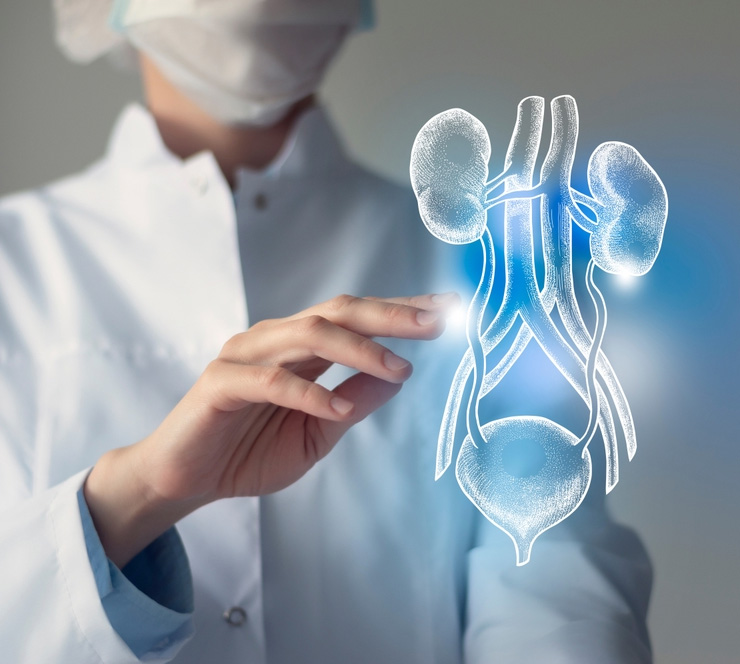
If you are prone to recurrent urine infections, you can head them off before they take hold.
Most people will experience this unwelcome condition at least once in their life. Every year urine infection affects millions of people. However, women are at a higher risk of developing urine infections than men.
Our urinary tract consists of the bladder, kidneys, and uterus, which process and expel urine from your body. It is responsible for expelling waste in the form of urine. Infection in any of these bladder parts is referred to as urine infection or urinary tract infection.
Urinary Tract Infection [UTI] occurs when bacteria get into your urine and travel up into your bladder. If the infection is limited to your bladder and urethra, it is referred to as a lower urine infection or cystitis. However, in more serious cases, this infection can spread to the rest of the urinary tract, impacting the bladder and kidney.
Urine infection doesn’t always cause signs and symptoms. If you ever experience a urine infection, you may notice certain common symptoms which include:
- Urinary frequency
- Urinary urgency
- Blood in urine
- Urine that’s dark or strong smelling
If you face any of these signs and symptoms of urinary tract infection, you should consult your doctor. The most ideal way to diagnose a urine infection is through a urine test. Besides, your doctor can also suggest a series of other tests.
Tests to diagnose urinary infection are:
- Urinalysis: This test examines the urine for red blood cells, white blood cells, and bacteria. The number of these white and red blood cells in urine can indicate an infection.
- Urine culture: A urine culture is used to determine the type of bacteria in your urine.
- CT scan: CT scan is just like an X-ray that takes cross-sections of the body. This test is typically like an X-ray where you will get a clear image of the infection.
- Ultrasound: In this test, the sound waves create an image of the internal organs. Through this test, a doctor can check the severity of the infection.
Based on the results and the severity of your infection, a doctor can suggest treatment options. Treatment of UTI depends on what part of the tract is involved. Antibodies are generally the first line of treatment to treat urine infection. However, home remedies may also prove beneficial to treat urine infections. However, if your condition is severe, antibodies are always the preferable option.
Taking of antibiotics
Antibiotics are an effective treatment for urine infections. However, your body can resolve minor uncomplicated UTIs on its own without the help of antibiotics. Complicated UTIs will require medical treatment.
Antibodies are the standard treatment for UTI because they kill the bacteria that causes the infection. However, you should take it only after proper consultation from the doctor.
Home remedies to treat urine infection
Certain researches have shown that at-home or natural UTI remedies can be an ideal way to treat urine infections. These home remedies have been a part of our traditional medicine systems for so many years.
To treat urine infection without antibiotics, you can try these below-mentioned home remedies.
Stay hydrated
Drinking enough water is among the simplest ways to help prevent and treat UTIs. Water allows the urinary tract organs to efficiently remove waste from the body while retaining vital nutrients and electrolytes.
Staying hydrated can dilute urine and as well ensure that it flows through your system more quickly. This makes it harder for bacteria to reach the cells in your urinary organs.
Therefore, you should drink enough water to keep yourself hydrated. It is estimated that a person should drink at least six to eight glasses of water each day.
Urinate when the need arises
Urination puts pressure on the bacteria in your urinary tract and helps to clear them out. It also reduces the exposure time of the bacteria in the urine to the cells in the urinary tract. Thus, reducing the risk of urine infection.
Therefore, you should always urinate, especially when the urge strikes, to help prevent and treat UTIs.
Get enough Vitamin CVitamin C is essential to get rid of urine infections. It is an antioxidant that helps to improve the functioning of your immune system It reacts with nitrates in urine to form nitrogen oxide that can kill bacteria. In addition, it can lower the pH level in urine, making it less likely for the bacteria to survive.
However, taking other supplements alongside vitamin C may maximize its benefits. The study of National Institutes of Health suggested that women should get at least 75 mg of vitamin C in a day while men need around 90 mg per day.
Cut bladder irritants from your dietWhen you have a urine infection, caffeine, alcohol, spicy food, and artificial sweeteners can irritate your bladder. However, eating healthy foods such as high-fiber carbohydrates is good for your digestive system and can help prevent bladder infection.
Soothe UTI pain with heatInflammation and irritation from urine infection can cause burning sensation and pain around your pubic area. Using a heating pad can help soothe the area. However, keep the heat setting low, and don’t apply it directly to your skin.
Consider herbal remediesYou may also find some relief from urine infection by taking herbs like bearberry leaf. Research shows that it can keep bacteria from attaching to the walls of the urinary tract. D-mannose supplements also help to treat UTI. It is a simple sugar found naturally in fruits, including oranges, apples, and cranberries.
Smt. Paarvati Devi Hospital: Best Urologist in Amritsar
Smt. Paarvati Devi Hospital is known to provide top-quality treatment to all its patients. Our urologist in Amritsar have years of expertise in treating complex surgeries.
Make a move and book an appointment with our urologists.
